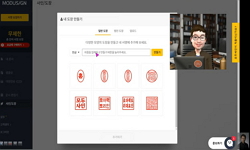In the U.S.A, punitive damages are awarded in the case of malicious tort by the defendant for defamation. However, if the plaintiff is a public figure, not only malice but also at least “actual malice” is required to claim damages, whether compens...
http://chineseinput.net/에서 pinyin(병음)방식으로 중국어를 변환할 수 있습니다.
변환된 중국어를 복사하여 사용하시면 됩니다.
- 中文 을 입력하시려면 zhongwen을 입력하시고 space를누르시면됩니다.
- 北京 을 입력하시려면 beijing을 입력하시고 space를 누르시면 됩니다.
https://www.riss.kr/link?id=A108734937
-
저자
봉영준 (청운대학교)
- 발행기관
- 학술지명
- 권호사항
-
발행연도
2023
-
작성언어
Korean
-
주제어
허위·조작보도 ; 명예훼손 ; 징벌적 손해배상 ; 현실적 악의 ; 공인 ; 공적 사안 ; 사인 ; 언론의 자유 ; False/manipulated reports ; defamation ; punitive damages ; actual malice ; public figure ; public concern ; private person ; freedom of speech
-
등재정보
KCI등재
-
자료형태
학술저널
-
수록면
217-239(23쪽)
- 제공처
-
0
상세조회 -
0
다운로드
부가정보
다국어 초록 (Multilingual Abstract)
In Korea, the amendment bill to the 「Act On Press Arbitration And Remedies For Damage Caused By Press Reports」 intends to introduce a five-times compensation system for actual damages in cases of defamation due to false or manipulated reports with clear “malice or gross negligence.” Many papers and news outlets oppose the introduction of the 5-times compensation system, saying that introducing the 5-fold compensation system violates the principle of excessive prohibition. However, I do not think that the introduction of punitive damages is contrary to the principle of excessive prohibition. Rather, it is wrong to stipulate that there is no liability for punitive damages even if false or manipulated reports are made with clear "malice or gross negligence" for public figures or public matters within a certain range. It goes against the concept of justice to insist on the freedom of speech even when the press, which has lost self-control, commits repeated and malicious defamatory acts. Although there are currently several relief systems for defamatory media reports, there is a need to strengthen civil penalties for malicious false and fabricated reports and to prevent such wrongful acts.
Therefore, just as the punitive damages system has already been introduced in 20 Acts, the 「Act On Press Arbitration And Remedies For Damage Caused By Press Reports」 should also introduce it.
In the U.S.A, punitive damages are awarded in the case of malicious tort by the defendant for defamation. However, if the plaintiff is a public figure, not only malice but also at least “actual malice” is required to claim damages, whether compensatory or punitive. On the other hand, if the plaintiff is a private person, a claim for compensatory damages can be claimed if the defendant's malice or negligence is proved, and punitive damages can be claimed if there is malice or “actual malice.” On the other hand, a plaintiff who is a private person can claim compensatory damages if he/she proves the defendant’s malice or negligence, and can claim punitive damages if he/she proves the defendant’s malice or “actual malice.” In other words, even in the United States, which can be said to be the heaven of the press, punitive damages are recognized in cases of malicious defamation. In addition, punitive damages are recognized even if the plaintiff is a public figure, a public figure, or the matter is a public concern.
In Korea, the amendment bill to the 「Act On Press Arbitration And Remedies For Damage Caused By Press Reports」 intends to introduce a five-times compensation system for actual damages in cases of defamation due to false or manipulated reports with clear “malice or gross negligence.” Many papers and news outlets oppose the introduction of the 5-times compensation system, saying that introducing the 5-fold compensation system violates the principle of excessive prohibition. However, I do not think that the introduction of punitive damages is contrary to the principle of excessive prohibition. Rather, it is wrong to stipulate that there is no liability for punitive damages even if false or manipulated reports are made with clear "malice or gross negligence" for public figures or public matters within a certain range. It goes against the concept of justice to insist on the freedom of speech even when the press, which has lost self-control, commits repeated and malicious defamatory acts. Although there are currently several relief systems for defamatory media reports, there is a need to strengthen civil penalties for malicious false and fabricated reports and to prevent such wrongful acts.
Therefore, just as the punitive damages system has already been introduced in 20 Acts, the 「Act On Press Arbitration And Remedies For Damage Caused By Press Reports」 should also introduce it.
동일학술지(권/호) 다른 논문
-
- 한양법학회
- 천영성
- 2023
- KCI등재
-
- 한양법학회
- 이상명
- 2023
- KCI등재
-
AI의 공정성에 관한 연구 - 차별 없는 AI 사회의 실현 -
- 한양법학회
- 손영화
- 2023
- KCI등재
-
원청 사업주의 단체교섭 당사자로서의 사용자성에 관한 검토
- 한양법학회
- 정영훈
- 2023
- KCI등재





 DBpia
DBpia






